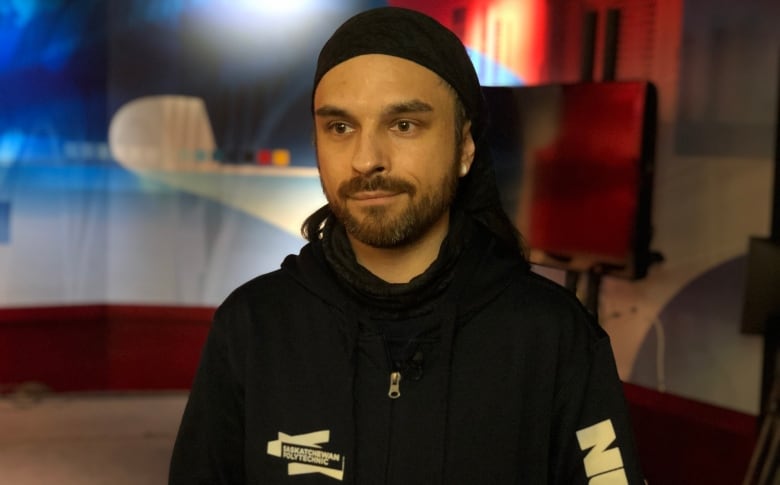Saskatoon's new mental health ER unit closing this year
Activists say unit closes frequently, is used as overflow area for other patients

Saskatoon's new mental health assessment unit at Royal University Hospital will close later this year.
While the Saskatchewan Health Authority says the unit was always meant to be temporary, advocates say it wasn't properly staffed and that money was misused.
"I feel we were duped by the government," said Jae Blakley, a mental health activist in Saskatoon.
Opened in April 2018, the private seven-bed unit was supposed to stream patients suffering from mental health problems away from the crowds at Saskatchewan's busiest emergency department.
Instead, advocates say it is often closed or used as overflow beds for other patients.
"There's only one psychiatric liaison nurse giving 12 hours of coverage," said Blakley. "Mental health patients who come in in the middle of the night stay in the waiting room if they're not bleeding."

The health region disagrees with that assessment. It said the unit is open 99 per cent of the time.
Lisa Collard, the health authority's director of emergency services, said on average RUH gets 15 mental health patients a day. There can be rare occasions where a large number will come at the same time.
"There are seven beds in that space and there are times when the capacity is greater," Collard said. "So not everybody would get the opportunity to go in that space. It just depends on how many patients present in a day."

But if the space is full, the hospital will provide care elsewhere within the department, she added.
'It costs lives'
Blakley said he has watched friends with severe mental illness wait hours on plastic chairs at Royal University Hospital's emergency department.
In 2017, officials said roughly 10 per cent of the 5,000 emergency mental health patients who turn up at RUH's emergency department each year left without being treated.
"When those people go back into the community they're not going to good places," said Blakley. "It costs lives."
He said three of his friends committed suicide after spending hours waiting for treatment at RUH.
"If you have an anxiety disorder, Royal University Hospital's ER is an impenetrable wall," said Blakley, a former member of the hospital's Adult Mental Health Patient and Family Advisory Committee.
"It's a terrifying place to be," he said.
But Collard said every patient needs to be assessed when they come through the doors.
"It's really important that we help people understand that that triage process is so imperative so we can provide the proper care for the patient," she said.
"Often it's a combined physical and mental health need. And so we've got the right people providing the right care for the patient, and hopefully in the right time."

In October 2017, Dr. Marilyn Baetz, then-head of psychiatry for the Saskatoon Health Region, told CBC that "when patients come in who are already under a great deal of distress, we know that an environment that's very busy and noisy only further makes things difficult for them."
At that time, Baetz said the seven bed unit would be "an opportunity for them to be seen sooner," in a more private and pleasant place.
Baetz declined comment when contacted by CBC this week.
'Private spaces' at new children's hospital
In an email, officials with the Saskatchewan Health Authority said the emergency mental health unit was never meant to be a permanent fix.
"The Mental Health Assessment Unit was established on a temporary basis, with the understanding that its quiet single room space would no longer be needed when the emergency department relocates to its new space with all private rooms when the Jim Pattison Children's Hospital opens in late 2019," the email said.

Officials told CBC the children's hospital "will include private spaces for patients that require emergency mental health care."
They would not say how many private spaces will be made available for mental health patients, nor was there any mention of a separate triage area or waiting room for emergency mental health patients and their families.
'It didn't work the way it was supposed to'
The bulk of the money to build the existing emergency mental health assessment unit came from a $1-million donation from Les and Irene Dubé, longtime business owners and philanthropists in Saskatoon.
Blakley said the unit was never used to its full capacity, and often becomes as a 'dumping ground' for other patients.
"Their money just got flushed down the toilet," he said. "From the beginning it didn't work the way it was supposed to."

Mental health advocate and therapist Ryan Wright agreed.
"The misuse of money is important to acknowledge," he said, noting the donation from the Dubés could have been used to provide more holistic mental health services in the community.
He and Blakley both said staffing the seven-bed unit as intended would help people in crisis.
"It's important that they don't have to wait very long to get support help and services," said Wright. "If they're going through having a psychosis or a bipolar episode, or they're being totally ravaged by post-traumatic stress physiology and symptomology, they need help right now."
"Not tomorrow night, not in eight hours," Wright said. "They need to be able to get into someone as quickly as possible."
One manager told CBC the existing mental health assessment unit in the RUH basement could stay open, while other emergency patients go to the new hospital.
The Saskatchewan Health Authority SHA said officials are "currently reviewing the need for the Mental Health Assessment Unit within the broader context of how mental health and addictions services will be delivered at the Royal University and Children's Hospitals."